Related Research Articles
The Liberal Unionist Party was a British political party that was formed in 1886 by a faction that broke away from the Liberal Party. Led by Lord Hartington and Joseph Chamberlain, the party established a political alliance with the Conservative Party in opposition to Irish Home Rule. The two parties formed the ten-year-long coalition Unionist Government 1895–1905 but kept separate political funds and their own party organisations until a complete merger between the Liberal Unionist and the Conservative parties was agreed to in May 1912.
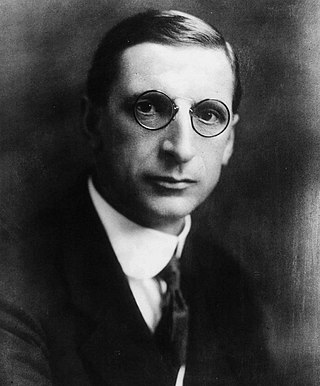
The Irish component of the 1918 United Kingdom general election took place on 14 December 1918. It was the final United Kingdom general election to be held throughout Ireland, as the next election would happen following Irish independence. It is a key moment in modern Irish history, seeing the overwhelming defeat of the moderate nationalist Irish Parliamentary Party (IPP), which had dominated the Irish political landscape since the 1880s, and a landslide victory for the radical Sinn Féin party. Sinn Féin had never previously stood in a general election, but had won six seats in by-elections in 1917–1918. The party had vowed in its manifesto to establish an independent Irish Republic. In Ulster, however, the Unionist Party was the most successful party.

The Irish Unionist Alliance (IUA), also known as the Irish Unionist Party, Irish Unionists or simply the Unionists, was a unionist political party founded in Ireland in 1891 from a merger of the Irish Conservative Party and the Irish Loyal and Patriotic Union (ILPU) to oppose plans for home rule for Ireland within the United Kingdom of Great Britain and Ireland. The party was led for much of its existence by Colonel Edward James Saunderson and later by St John Brodrick, 1st Earl of Midleton. In total, eighty-six members of the House of Lords affiliated themselves with the Irish Unionist Alliance, although its broader membership among Irish voters outside Ulster was relatively small.

The Partition of Ireland was the process by which the Government of the United Kingdom of Great Britain and Ireland (UK) divided Ireland into two self-governing polities: Northern Ireland and Southern Ireland. It was enacted on 3 May 1921 under the Government of Ireland Act 1920. The Act intended both territories to remain within the United Kingdom and contained provisions for their eventual reunification. The smaller Northern Ireland was duly created with a devolved government and remained part of the UK. The larger Southern Ireland was not recognised by most of its citizens, who instead recognised the self-declared 32-county Irish Republic. On 6 December 1922, Ireland was partitioned. At that time, the territory of Southern Ireland left the UK and became the Irish Free State, now known as the Republic of Ireland. Ireland had a large Catholic, nationalist majority who wanted self-governance or independence. Prior to partition the Irish Home Rule movement compelled the British Parliament to introduce bills that would give Ireland a devolved government within the UK. This led to the Home Rule Crisis (1912–14), when Ulster unionists/loyalists founded a large paramilitary organization, the Ulster Volunteers, that could be used to prevent Ulster from being ruled by an Irish government. The British government proposed to exclude all or part of Ulster, but the crisis was interrupted by the First World War (1914–18). Support for Irish independence grew during the war and after the 1916 armed rebellion known as the Easter Rising.

The Home Rule movement was a movement that campaigned for self-government for Ireland within the United Kingdom of Great Britain and Ireland. It was the dominant political movement of Irish nationalism from 1870 to the end of World War I.

John Morrow Simms was a Presbyterian minister and unionist politician in Northern Ireland.
The 1914 North East Derbyshire by-election was a Parliamentary by-election held on 20 May 1914. The constituency returned one Member of Parliament (MP) to the House of Commons of the United Kingdom, elected by the first past the post voting system. About a third of the electorate were directly involved in the mining industry. This was the penultimate by-election to take place before the outbreak of the First World War. It demonstrated the weakness of support for the Labour party in 1914 when opposed by a Liberal party candidate.
The Manchester South by-election was a Parliamentary by-election held on 5 March 1912. The constituency returned one Member of Parliament (MP) to the House of Commons of the United Kingdom, elected by the first past the post voting system.
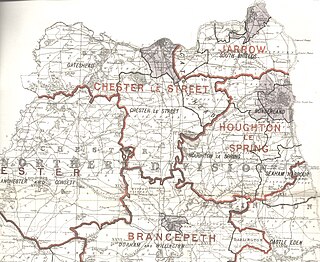
The 1914 North West Durham by-election was a Parliamentary by-election held on 30 January 1914. It returned one Member of Parliament (MP) to the House of Commons of the United Kingdom, elected by the first past the post voting system.
The 1913 Wick Burghs by-election was a Parliamentary by-election held on 8 December 1913. It was a Scottish Highland constituency that returned one Member of Parliament (MP) to the House of Commons of the United Kingdom, elected by the first past the post voting system. The constituency was a district of burghs representing the parliamentary burghs of Cromarty, Dingwall, Dornoch, Kirkwall, Tain and Wick. The by-election took place during the third anniversary of the Liberal Government's re-election of December 1910. It was thought to be a key indicator to the outcome of the following general election anticipated to take place in 1914–15.
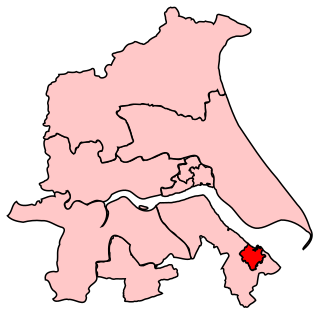
The 1914 Great Grimsby by-election was a Parliamentary by-election held on 12 May 1914. The constituency returned one Member of Parliament (MP) to the House of Commons of the United Kingdom, elected by the first past the post voting system. It was one of the last by-election contests to take place before the outbreak of the Great War, and provided a good indicator of how the main parties would have performed at an anticipated general election for 1914 or 1915.
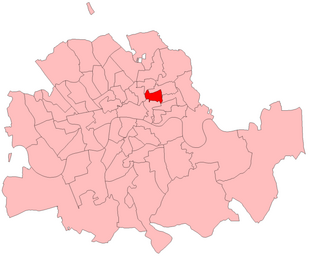
The 1914 Bethnal Green South West by-election was a Parliamentary by-election held on 19 February 1914. The constituency returned one Member of Parliament (MP) to the House of Commons of the United Kingdom, elected by the first past the post voting system.
The 1913 South Lanarkshire by-election was a Parliamentary by-election held on 12 December 1913. The constituency returned one Member of Parliament (MP) to the House of Commons of the United Kingdom, elected by the first past the post voting system.

The 1913 Linlithgowshire by-election was a Parliamentary by-election held on 7 November 1913. The constituency returned one Member of Parliament (MP) to the House of Commons of the United Kingdom, elected by the first past the post voting system.
The 1912 Midlothian by-election was a Parliamentary by-election held on 10 September 1912. The constituency returned one Member of Parliament (MP) to the House of Commons of the United Kingdom, elected by the first past the post voting system.
The 1914 Londonderry City by-election was a Parliamentary by-election held on 30 November 1914. The constituency returned one Member of Parliament (MP) to the House of Commons of the United Kingdom, elected by the first past the post voting system.
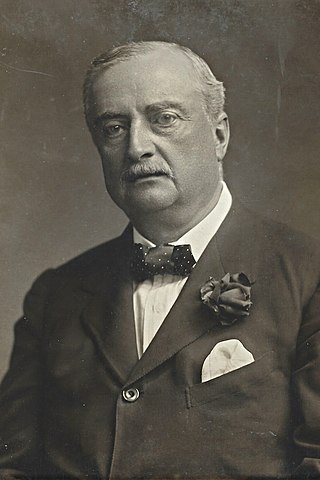
The Irish component of the December 1910 United Kingdom general election took place between 3 and 19 December, concurrently with the polls in Great Britain. Though the national result was a deadlock between the Conservatives and the Liberals, the result in Ireland was, as was the trend by now, a large victory for the Irish Parliamentary Party. The IPP supported the Liberals to form a government after the election. This was to be the party's last victory, however. Due to the outbreak of World War I in 1914, the next general election would not be held until 1918, by which time events both in Ireland and Britain and outside would conspire to see the rise of a new nationalist party, Sinn Féin, and the subsequent demise of the IPP.
The 1919 East Antrim by-election was held on 27 May 1919. The by-election was held due to the appointment of Commander of the Irish guards of the incumbent Irish Unionist MP, Robert McCalmont. It was won by the Independent Unionist candidate George Boyle Hanna.
The 1913 East Antrim by-election was held on 19 February 1913. The by-election was held due to the death of the incumbent Irish Unionist MP, James McCalmont. It was won by the Irish Unionist candidate Robert McCalmont, who was unopposed.
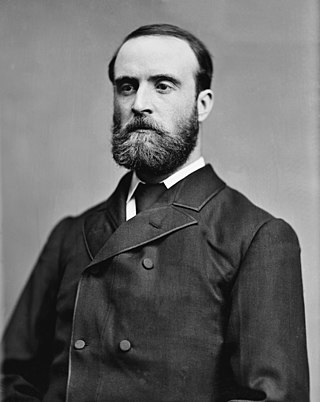
The 1885 general election in Ireland was the first election following the Representation of the People Act 1884 and the Redistribution of Seats Act 1885, which redrew the Irish electoral landscape.
References
- ↑ Leigh Rayment's Historical List of MPs
- ↑ Craig, FWS, ed. (1974). British Parliamentary Election Results: 1885-1918. London: Macmillan Press. ISBN 9781349022984.